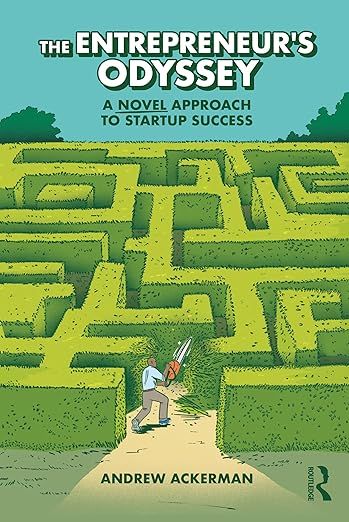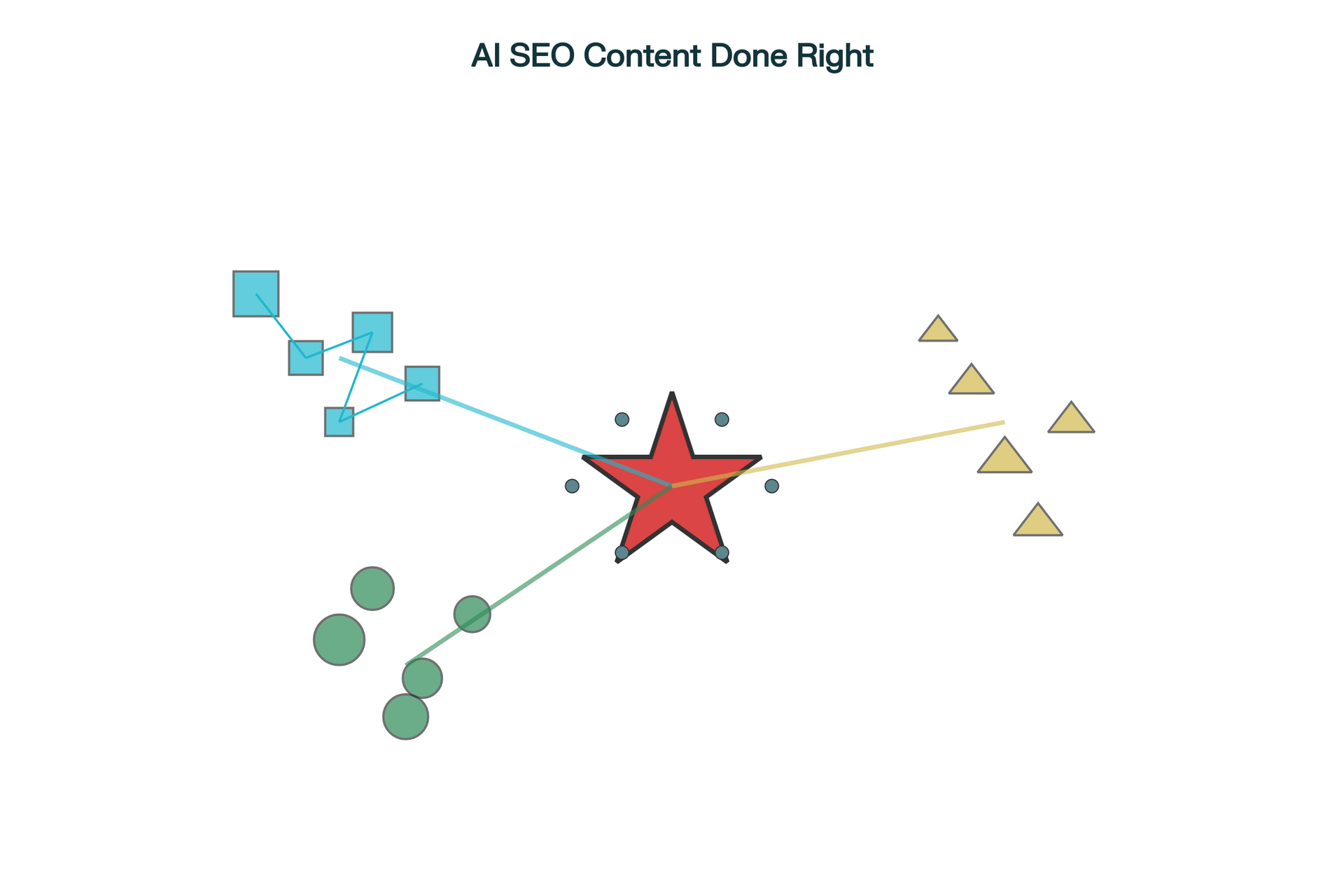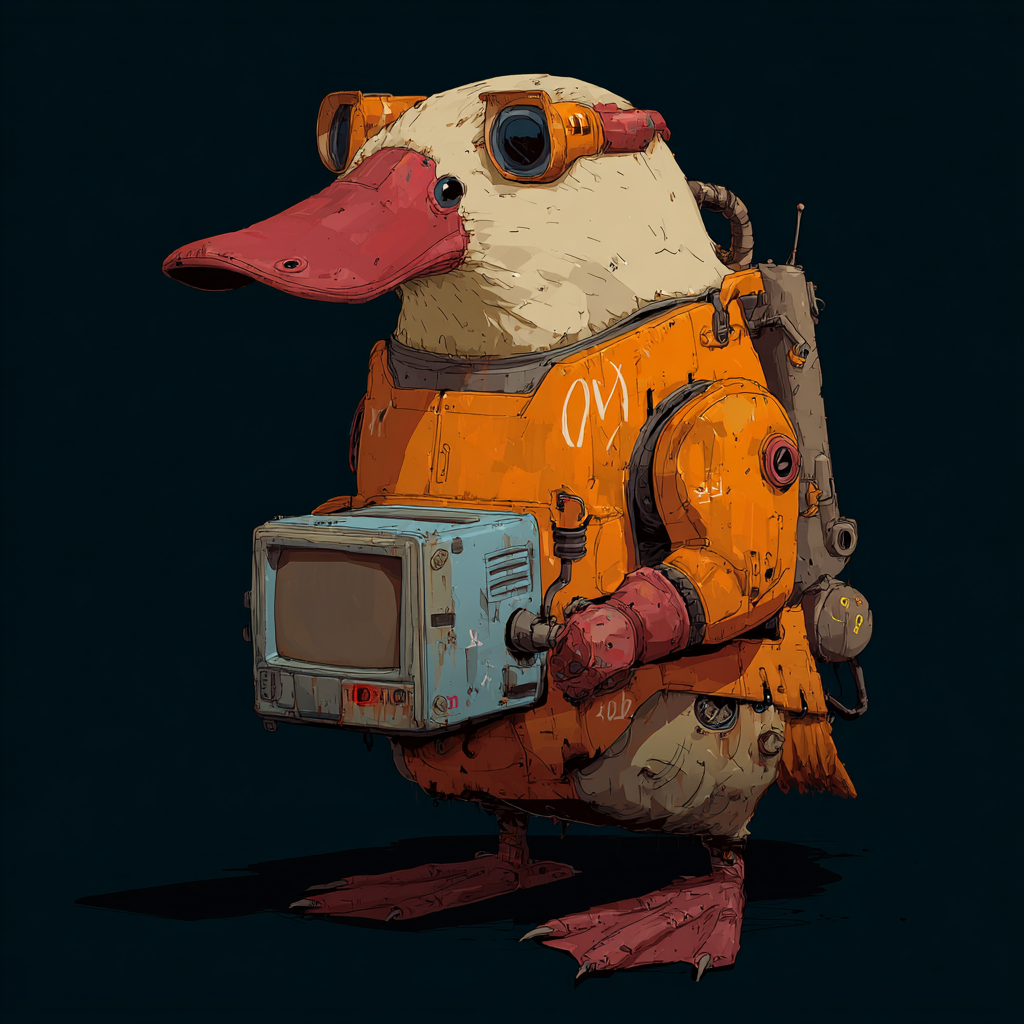How PlatypusOS Is Rewriting the Future of Work for Main Street Businesses
By Jason Wade, Founder NinjaAI and AiMainStreets.com • November 13, 2025

AI Assistants as Staff: How PlatypusOS Is Transforming Small Business Operations Forever
TLDR
AI is crossing a threshold. It is no longer a tool you open; it is becoming staff you command. PlatypusOS accelerates this shift by connecting AI assistants directly to thousands of business applications, allowing them to execute tasks through voice, text, and automated workflows. Instead of configuring Zapier-style automations, PlatypusOS reads API documentation automatically and performs actions as if you hired a digital employee. This deep dive explains how PlatypusOS works, how it integrates with multi-model AI workflows, how it can power systems like ParaVibes legal document automation, and why this is the future of Main Street business automation across SEO, GEO, AEO, content velocity, and daily operational labor.
TABLE OF CONTENTS
1. Introduction: AI has crossed a new line
2. The small-business problem no platform has solved
3. From AI tools to AI labor
4. Inside PlatypusOS: what it actually does
5. Automatic API interpretation
6. AI assistants by role
7. The shift to voice-first operations
8. Why this matters for Main Street businesses
9. ParaVibes: the perfect stress test
10. Multi-model legal workflows
11. The need for interactive intake
12. Hallucinations and AI reliability challenges
13. How PlatypusOS mitigates failure
14. Workflow automation for SEO, GEO, and AEO
15. Daily automated blog production
16. PSEO at scale for local markets
17. The psychology of AI content creation
18. AI workflow marketplaces
19. The WordPress moment for AI
20. The next decade of small business automation
21. Full FAQ: 20 detailed answers
1. Introduction: AI Has Crossed a New Line
Artificial intelligence used to be about convenience. It wrote emails, generated headlines, and sped up tasks you were already doing. But something changed. The moment AI could connect to external systems, interpret instructions, understand APIs, and execute operational commands, it crossed into a new category.
AI became labor.
This shift is what platforms like PlatypusOS are accelerating. It does not position AI as a chatbot. It positions AI as staff. The conversation between Jason Wade and Matthew White made it clear: the businesses that adopt AI as employees will outperform those that treat AI like a novelty.
2. The Small-Business Problem No Platform Has Solved
Main Street businesses - the contractors, pool companies, accountants, real estate agents, pest control operators, local service providers - all share a common pain:
They have too many tasks and not enough hands.
Updating CRMs, posting content, generating invoices, processing documents, sending quotes, writing emails, managing social accounts, drafting contracts… the list is endless. These tasks drown business owners. They also prevent growth.
AI tools solve none of this because tools still require operators.
PlatypusOS eliminates the operator.
3. From AI Tools to AI Labor
The traditional AI experience looks like this:
• You ask a model a question
• It responds
• You manually copy, paste, fix, reformat, refine, and post
This is “AI as software.”
PlatypusOS represents “AI as staff”:
• It logs into your tools
• Reads your APIs
• Executes instructions
• Takes action across systems
• Manages tasks automatically
Instead of being a writing assistant, it becomes an operational employee.
4. Inside PlatypusOS: What It Actually Does
PlatypusOS integrates directly with your SaaS ecosystem through OAuth or API keys.
Once connected, it:
1. Reads the API documentation for each app
2. Automatically generates server instructions
3. Makes those functions accessible to AI assistants
4. Executes tasks across 2,500+ apps
This enables commands like:
“Update John Doe in Salesforce, email him the new agreement, and send an invoice through QuickBooks.”
A human would click through five different screens to do this.
PlatypusOS does it on command.
5. Automatic API Interpretation: The Hidden Breakthrough
Most automation systems fail because they require the user to build the automation.
Zapier and Make are powerful, but they rely on:
• triggers
• actions
• filters
• conditions
• field mapping
• error handling
• API key setups
Small businesses don’t have the time or skill for this.
PlatypusOS automates the integrator role by reading the API documentation itself.
It becomes the developer, the integrator, and the automation engineer.
This is a tectonic shift.
6. AI Assistants by Role
PlatypusOS lets users build specialized assistants:
• Marketing Assistant
• Sales Assistant
• Finance Assistant
• Operations Assistant
Each assistant:
• has its own permissions
• works with different apps
• adopts your writing style
• executes tasks in its domain
For the first time, small businesses can build a team without hiring a team.
7. The Shift to Voice-First Operations
The future of work will be spoken.
Jason’s experiments with Whisper showed that speaking is far faster than typing, and far easier for rapid flows.
PlatypusOS embraced this by designing the entire platform to operate through voice commands.
This matters because contractors, field workers, and busy small business owners cannot sit behind a keyboard. But they can speak while driving, walking, or working.
Voice is the friction killer.
8. Why This Matters for Main Street Businesses
Main Street businesses are the biggest winners for three reasons:
1. Labor shortages
2. Rising operational costs
3. Lack of technical expertise
AI assistants solve all three.
A business that uses AI staff can produce more output with fewer humans.
A business that refuses will fall behind.
This gap will widen dramatically in the next 36 months.
9. ParaVibes: The Perfect Stress Test
Jason described ParaVibes - his legal document automation system as the ultimate stress test for AI.
The workflow involved:
• user narration
• multi-model refinement
• legal citation extraction
• state-by-state interpretation
• document formatting
• final delivery
Running this manually was chaotic.
PlatypusOS could automate the entire chain.
This is exactly the type of use case that defines AI labor.
10. Multi-Model Legal Workflows
Jason’s multi-model chain was structured and logically sound:
• GPT for architecture
• Perplexity for fact retrieval and citations
• Gemini for extended context (especially legal sections)
• Claude for final drafting
Each model played a specific role.
The issue was orchestration.
PlatypusOS fixes this by chaining steps together reliably.
11. The Need for Interactive Intake
Legal generation cannot rely solely on AI inference.
A structured 10-question intake ensures:
• correct state jurisdiction
• correct document type
• correct legal domain (civil, criminal, administrative)
• correct statutory references
PlatypusOS can run this automatically through either:
• its built-in workflow system
• Google Forms + API triggers
• voice-interactive flows
This makes legal document automation both precise and scalable.
12. Hallucinations and AI Reliability Challenges
Jason documented how models hallucinate when long workflows stack context.
• Safety filters block content
• Length limits break logic
• Models refuse legal topics
• Screenshots fail to load
This is a structural limitation of LLMs.
But PlatypusOS includes checkpointing and reasoning-exposure to reduce failure frequency.
13. How PlatypusOS Mitigates Failure
PlatypusOS uses:
• automatic clarification loops
• real-time reasoning visibility
• endpoint retry logic
• input validation
If a task is ambiguous, it does not hallucinate.
It asks a question.
This brings reliability into a domain where hallucinations are unacceptable.
14. Workflow Automation for SEO, GEO, and AEO
Jason’s example of a fully automated SEO engine illustrated the power of PlatypusOS:
• Read Gmail for Google alerts
• Detect AI or local business topics
• Build a blog post
• Post to Duda with the API
This is the new SEO stack:
Automation + Hyperlocal + Volume + GEO relevance.
15. Daily Automated Blog Production
AI is the answer to consistency.
PlatypusOS can generate:
• five posts per day
• 150 per month
• tied to local SEO and GEO terms
For plumbers, roofers, attorneys, accountants, and other small businesses, this is a competitive advantage.
Google rewards volume backed by relevance.
AI makes that volume possible.
16. PSEO at Scale for Local Markets
Programmatic SEO is the strategy big companies use to dominate search.
Local companies have never had access to it.
PlatypusOS changes that.
Small businesses can now produce:
• city pages
• ZIP code pages
• service pages
• comparison pages
• local guides
• FAQ libraries
This was impossible before.
Now it is an afternoon project.
17. The Psychology of AI Content Creation
Jason and Matthew emphasize that creators need to accept the cringe phase.
Consistency is what wins.
AI eliminates the friction but does not remove the fear of being seen.
This is the final mental barrier for creators and small businesses.
18. AI Workflow Marketplaces
PlatypusOS will allow users to:
• design workflows
• sell them
• install them
• modify them
• bundle them
This is the new creator economy: workflow entrepreneurs.
19. The WordPress Moment for AI
Matthew explains that enterprises spend over $200,000 on AI integration today.
PlatypusOS intends to bring that to $10 per month for small businesses.
This is the WordPress moment for AI.
WordPress democratized web development.
PlatypusOS democratizes AI operations.
20. The Next Decade of Small Business Automation
This is the direction everything is moving toward:
• personal AI assistants
• automated workflows
• voice-driven operations
• multi-model orchestration
• content velocity
• legal document automation
• financial task automation
• sales follow-up automation
Every small business will eventually have AI staff.
The only question is whether they adopt early or adopt late.
21. FAQs
1. What is PlatypusOS?
PlatypusOS is a browser-native AI operating system that turns artificial intelligence into digital staff by integrating with thousands of apps and automating operational tasks through voice or text input.
2. How does PlatypusOS replace Zapier?
Instead of forcing the user to build automations, PlatypusOS reads the API documentation automatically and executes instructions directly, eliminating the need for triggers, filters, and manual mapping.
3. Does PlatypusOS support voice commands?
Yes. It is designed to be voice-first, allowing users to run their business operations verbally, similar to speaking to an assistant.
4. Can I integrate my CRM?
Yes. PlatypusOS supports CRM integrations such as Salesforce, HubSpot, Zoho, and others through API access.
5. How many apps does PlatypusOS support?
Over 2,500 integrations across marketing, sales, finance, operations, and productivity.
6. Can AI assistants have different roles?
Yes. Users can create assistants such as Marketing Assistant, Sales Assistant, Finance Assistant, and Operations Assistant, each with its own access and responsibilities.
7. Is PlatypusOS safe for legal workflows?
With structured intake and multi-model refinement, it can safely automate legal document creation when paired with disclaimers and optional attorney review.
8. How does the system prevent hallucinations?
It uses internal feedback loops, clarification questions, and endpoint validation to reduce errors.
9. Can it run multi-model workflows automatically?
Yes. Workflows can route through GPT, Perplexity, Gemini, and Claude in sequence for high-quality legal or technical documents.
10. How does PlatypusOS handle ambiguous data?
It pauses execution and asks clarifying questions instead of hallucinating or making assumptions.
11. Can it automate SEO tasks?
Yes. It can read Gmail alerts, generate articles, and publish them directly to CMS platforms.
12. Can PlatypusOS post to Duda automatically?
Yes. It can authenticate with Duda’s API and publish blog posts or pages.
13. Does it work with Gmail?
Yes. It can scan emails, extract alerts, classify content, and trigger workflows.
14. Will PlatypusOS work on mobile?
A mobile version is planned to enable voice-first operations on the go.
15. Can it process large batches of content?
Yes. It can generate hundreds of articles, city pages, or PSEO content pieces through automated workflows.
16. Can small businesses afford this?
Yes. The subscription is around $10 per month, making enterprise-grade automation accessible to tiny businesses.
17. How does the workflow marketplace work?
Users can build workflows, publish them, and sell them to others — similar to app stores but for automations.
18. Can PlatypusOS power ParaVibes?
Yes. It can collect intake data, run multi-model refinement, store files, and email outputs automatically.
19. How does the browser-native design help?
It lets AI read user behavior, understand writing style, and operate as if it has full system context.
20. What is the future of AI assistants in small business?
Within five years, every small business will have multiple AI assistants performing tasks normally done by human staff — marketing, sales, finance, operations, content, and legal preparation.
--
Jason Wade — Founder of NinjaAI.com | Director of AiMainStreets.com | Co-Founder of ParaVibes.com | Hype Man at HypeSEO.com
Jason Wade builds AI visibility engines for the real world. As the founder of NinjaAI.com, he leads a new wave of AI-powered SEO, GEO, and AEO—giving local businesses the same algorithmic firepower that global brands use to dominate discovery. His work turns generative systems into practical, revenue-driving tools that help companies show up everywhere intelligent search is happening.
As Director of AiMainStreets.com, Jason is pushing a national initiative to rebuild America’s local business economy through machine intelligence. He designs frameworks that merge entity optimization, automated authority building, and community-driven visibility across Google, Perplexity, ChatGPT, Apple Intelligence, and every emerging AI discovery surface.
He’s also the co-founder of ParaVibes.com, extending his footprint into AI experiences, cultural storytelling, and next-generation digital expression.
And at HypeSEO.com, Jason serves as the resident hype man—bringing 20+ years of technology, marketing, and growth-strategy experience to small and mid-sized brands ready to compete in an AI-first world.
Jason’s philosophy is blunt: Main Street deserves machine intelligence. His mission is to make AI visibility a superpower for local companies—turning GEO from a niche tactic into a nationwide movement that amplifies human potential rather than replacing it.
If you want, I can turn this into a long-form founder page, a press-ready bio, or a brand-voice signature version for all your sites.
Insights to fuel your business
Sign up to get industry insights, trends, and more in your inbox.
Contact Us
We will get back to you as soon as possible.
Please try again later.
SHARE THIS






















